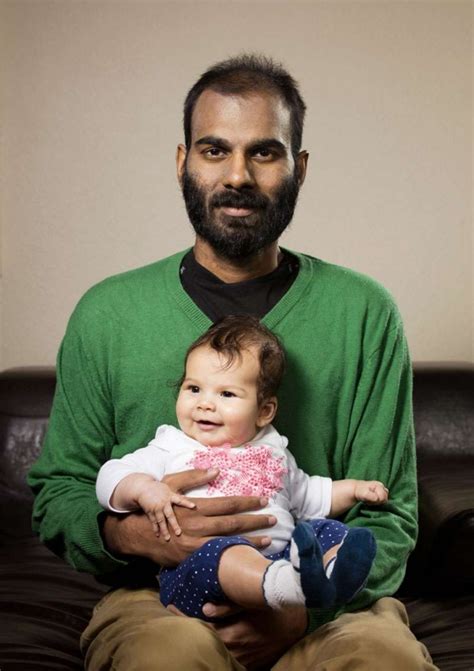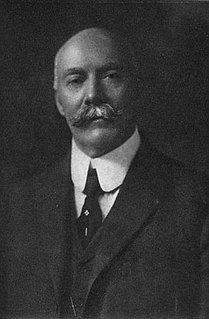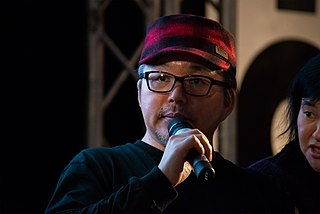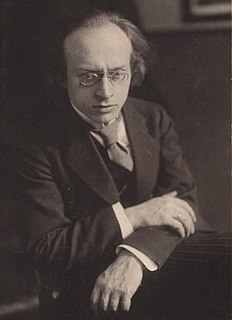A Quote by Roald Dahl
(Television) rots the senses in the head!
It kills imagination dead!
It clogs and clutters up the mind!
It makes a child so dull and blind
He can no longer understand
A fantasy, a fairyland!
His brain becomes as soft as cheese!
His powers of thinking rust and freeze!
He cannot think -he only sees!
Related Quotes
But somewhere, a child surprises himself with his endurance, his quick mind, his dexterous hands. Somewhere a child accomplishes with ease that which usually takes great effort. And this child, who has been blind to his past, but his heart still beats for the thrill of the race, this child's soul awakens. And a new champion walks among us.
Work kills no one, but worry has killed multitudes… Worry not only saps vitality and wastes energy, but it also seriously affects the quality of one's work. It cuts down ability. A man cannot get the highest quality of efficiency into his work when his mind is troubled. The mental faculties must have perfect freedom before they will give out their best. A troubled brain cannot think clearly, vigorously, and logically.
Science, in all its greatness, is still subject to human creativity. It starts the first moment a child tries to reach up and grab at the clouds. Soon, the child learns that his own hands cannot reach the sky, but his hands are not the limit of his potential. For the human brain observes, considers, understands, and adapts. Locked within the mind is infinite possibility.
Fantasy is a product of thought, Imagination of sensibility. If the thinking, discursive mind turns to speculation, the result isFantasy; if, however, the sensitive, intuitive mind turns to speculation, the result is Imagination. Fantasy may be visionary, but it is cold and logical. Imagination is sensuous and instinctive. Both have form, but the form of Fantasy is analogous to Exposition, that of Imagination to Narrative.
I’m going to make the wildly unfounded assumption that Satara’s dead by your hand and not Tory’s. Now, stay with me on this, Cajun. My father slit my throat and murdered my wife because he thought I’d betrayed him by getting married. Before that, he loved me more than his life and I was his last surviving child. His second in command. Now what do you think he’s going to do to you once he sees her body? I can assure you, it won’t be a fun-filled trip to Chuck E. Cheese. (Urian)
God is dead. Let us not understand by this that he does not exist or even that he no longer exists. He is dead. He spoke to us and is silent. We no longer have anything but his cadaver. Perhaps he
slipped out of the world, somewhere else like the soul of a dead man. Perhaps he was only a dream...God is dead.
The naturalist is a civilized hunter. He goes alone into the field or woodland and closes his mind to everything but that time and place, so that life around him presses in on all the senses and small details grow in significance. He begins the scanning search for which cognition was engineered. His mind becomes unfocused, it focuses on everything, no longer directed toward any ordinary task or social pleasantry.
The nephew revenges himself for this, by holding his breath and terrifying his kinswoman with the dread belief that he has made up his mind to burst. Regardless of whispers and shakes, he swells and becomes discoloured, and yet again swells and becomes discoloured, until the aunt can bear it no longer, but leads him out, with no visible neck, and with his eyes going before him like a prawn's.
"Death," said Akiva. His life was leaving him fast now that he no longer held his wound. His eyes just wanted to drift closed. "I'm ready." "Well, I'm not. I hear it's dull, being dead." She said it lightly, amused, and he peered up at her. Had she just made a joke? She smiled. Smiled. He did, too. Amazed, he felt it happening, as if her smile had triggered a reflex in him. "Dull sounds nice," he said, letting his eyes flutter closed. "Maybe I can catch up on my reading."
The modern child may early in his or her existence have natural inclinations toward spirituality. The child may have imagination, originality, a simple and individual response to reality, and even a tendency to moments of thoughtful silence and absorption. All these tendencies, however, are soon destroyed by the dominant culture. The child becomes a yelling, brash, false little monster, brandishing a toy gun or dressed up like some character he has seen on television.






































